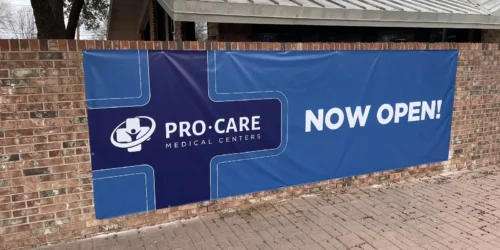When it comes to the different types of doctors, it can be difficult to keep track of who does what (especially after an injury or traumatic experience like a car accident). Today we’ll be exploring a key doctor that everyone should know about — orthopedic doctors.
What Does Orthopedic Mean?
Orthopedic is a term that might sound complex — but at its core, it’s about movement. Derived from the Greek words “ortho” meaning straight and “pais” meaning child, the field of orthopedics originally involved correcting skeletal deformities in children. However, it has expanded and evolved over time to encompass the diagnosis, treatment, and prevention of injuries and diseases to the musculoskeletal system (essentially the framework that keeps us upright and moving). At its core, orthopedics is about ensuring that this framework functions correctly, without pain or restriction — so you can lead an active and healthy life.
What is an Orthopedic Doctor?
Based on that background, orthopedic doctors (or orthopedists) are medical professionals who have studied the intricate relationship between bones, joints, and soft tissues. They address a wide range of conditions, from acute injuries like fractures and sprains to chronic issues such as arthritis and back pain. Orthopedic doctors use both non-surgical and surgical methods to restore function and alleviate pain, often working with active rehabilitation specialists such as chiropractors to provide comprehensive care for you.
What Does an Orthopedic Doctor Actually Do?
Orthopedists have a wide range of responsibilities, from treating fractures and dislocations to arthritis and back pain. Their expertise extends to sports injuries, congenital conditions, degenerative diseases, and car accident recovery. Whether it’s a broken bone, a dislocated shoulder, or muscular damage, they prescribe treatment plans tailored to each patient’s unique needs using a mix of active rehab, medication, and lifestyle changes to restore function and alleviate pain.
Orthopedic Doctor vs. Orthopedic Surgeon
While all orthopedic surgeons are orthopedic doctors, not all orthopedic doctors are orthopedic surgeons. As the title suggests, orthopedic surgeons are trained to perform surgeries to correct issues within the musculoskeletal system. This might include joint replacements, fracture repairs, or arthroscopic surgeries.
On the other hand, non-surgical orthopedic doctors focus primarily on diagnosing conditions, prescribing treatments like physical therapy or medications, and performing minor procedures, such as injections. In many cases, orthopedic doctors and surgeons collaborate to provide optimal patient care.
When to See an Orthopedic Doctor
Symptoms of orthopedic injuries like severe pain, swelling, deformity, or difficulty moving a body part should receive immediate attention. Even for minor injuries, early intervention can prevent them from becoming major problems down the road. Some examples include:
- Acute Injuries: If you’ve suffered a fracture, dislocation, or severe sprain/strain, an orthopedic doctor can provide immediate and specialized care. These injuries often require precise intervention for proper healing.
- Chronic Pain: Persistent pain in joints, muscles, or bones that doesn’t improve with rest and over-the-counter medications also warrants a visit to an orthopedist. Conditions like arthritis, tendonitis, and bursitis fall into this category.
- Limited Mobility: Difficulty performing everyday activities due to stiffness, pain, or decreased range of motion should be evaluated by an orthopedic doctor. This could indicate underlying issues that need medical intervention.
- Post-Accident Recovery: After a car accident, you may experience musculoskeletal pain or injuries. Orthopedic doctors specialize in treating these post-accident conditions so you receive the best care for a full recovery.
What is Orthopedic Impairment?
Similar to orthopedic injuries, orthopedic impairment also limits a person’s ability to move or perform daily activities. However, these are more long-term conditions that can stem from conditions like osteoarthritis, rheumatoid arthritis, scoliosis, or severe fractures that have healed improperly, and can significantly impact a person’s quality of life.
If you’re struggling with chronic pain, limited mobility, or difficulty performing daily activities due to a musculoskeletal issue, consulting with an orthopedic doctor can provide valuable insights and treatment options.
Don’t Ignore Pain After an Accident — Faster Recovery Today
Crashes can lead to severe orthopedic injuries, like fractures, dislocations, and soft tissue damage (like whiplash). Our team of orthopedic doctors specializes in post-accident injury care, so you get the best treatment available to recover fully and return to your daily activities. Whether it’s through surgery, physical therapy, or pain management, we’re here to help you every step of the way. If you’ve been in a car accident and are experiencing pain or mobility issues, don’t wait for it to become unbearable. Contact us for a consultation today — your recovery is our priority.



